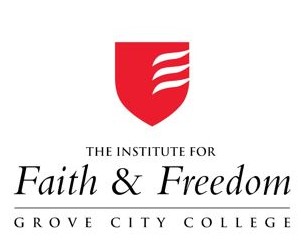The Polls Got it Wrong About “The Red Wave.” Is That Evidence of Liberal Bias—or its Absence?

In the last two presidential elections, both of them dominated by the rancorous, enthusiastic candidacies of Donald Trump, the polling and prognostication industries obviously understated the Republican candidate’s strength while over-estimating the performance of his Democratic opponents. Though no one can deny that the recognized experts made generally accurate predictions about the distribution of the national popular vote – Hillary Clinton won her tally by a margin of 3,000,000 while Joe Biden racked up a 7,000,000-vote edge – the battle for the all-important Electoral College control proved far closer in both 2016 and 2020 than prominent surveys and analysts had predicted.
In trying to explain their mistakes, public opinion experts cited the phenomenon of “shy Trumpers” – supporters of the Republican nominee who felt reluctant to talk about their backing for such a controversial candidate. They also acknowledged that conservatives widely perceived a liberal bias in the media and therefore proved less likely to cooperate with pollsters than their liberal counterparts, thereby tilting surveys in a left-leaning direction.
In this context, what’s the explanation for the peculiar polling of 2022 when the analysts, almost unanimously, anticipated a mighty “Red Wave” that never materialized? If anything, the consensus on the prospects for Republican gains in the House, the Senate, governorships and state legislatures proved dramatically exaggerated. Elections across the country turned out to be much closer, with more vigorous Democratic performance than generally anticipated. No major media outlets predicted that Joe Biden’s party would actually gain votes in the Senate, as now appears likely pending the run-off election in Georgia. Even more shocking, the final control of the House of Representatives remains uncertain even three days after the election. When it is ultimately secured, the widely expected Republican majority will prove far more narrow or tenuous than confident GOP strategists expected.
In the period between this week’s balloting and the upcoming battle for White House control in 2024, pollsters and analysts will no doubt debate the reasons for their recent mistakes but in that process, they can easily, immediately rule out one explanation.
No one can plausibly suggest that this year’s tendency to overstate the Republican edge in public opinion stemmed from pro-Democratic bias. Yes, the majority of the analysts whose work dominates legacy media are undeniably identified as liberal-leaning but their errors in 2022 in no way assisted the progressive cause. If anything, the ubiquitous chatter of a formidable landslide on behalf of the GOP would have worked to encourage Republican turnout and suppressed progressive participation and enthusiasm. Had the public prepared for the knife-edge, unsettled struggle for control of the House, it’s likely that the Democrats could have out-performed expectations even more than they did, raising additional money and delivering higher vote totals.
Some of the exit polling provides hints as to a possible explanation for the gap between public prognostication and final results. AP VoteCast, a nationwide survey of more than 94,000 voters showed that 44% of them identified “the future of democracy” as their “primary consideration” in casting their ballots. A startling majority of Democrats (56%) and one-third of Republicans (34%) agreed with this sentiment.
While analysts emphasized inflation, crime, and abortion as the dominant voter concerns, they simultaneously derided President Biden’s insistence in high-profile speeches and daily campaigning that “Democracy is on the ballot” as an out-of-touch, desperation tactic with scant support. It turns out that in the last weeks of the midterm battle opinion may have shifted, altogether unexpectedly, in the president’s direction. The disappointing performance of GOP “election deniers” in every corner of the country provides further evidence that this emphasis on stolen election narratives from many Republican candidates, may have worked to win GOP primaries but ultimately boosted Democrats when voters made their final decisions.
As usual, following mistaken assumptions on the part of the punditocracy, the analysis industry will need to readjust both its procedures and perspectives for a more accurate performance in upcoming contests.




















